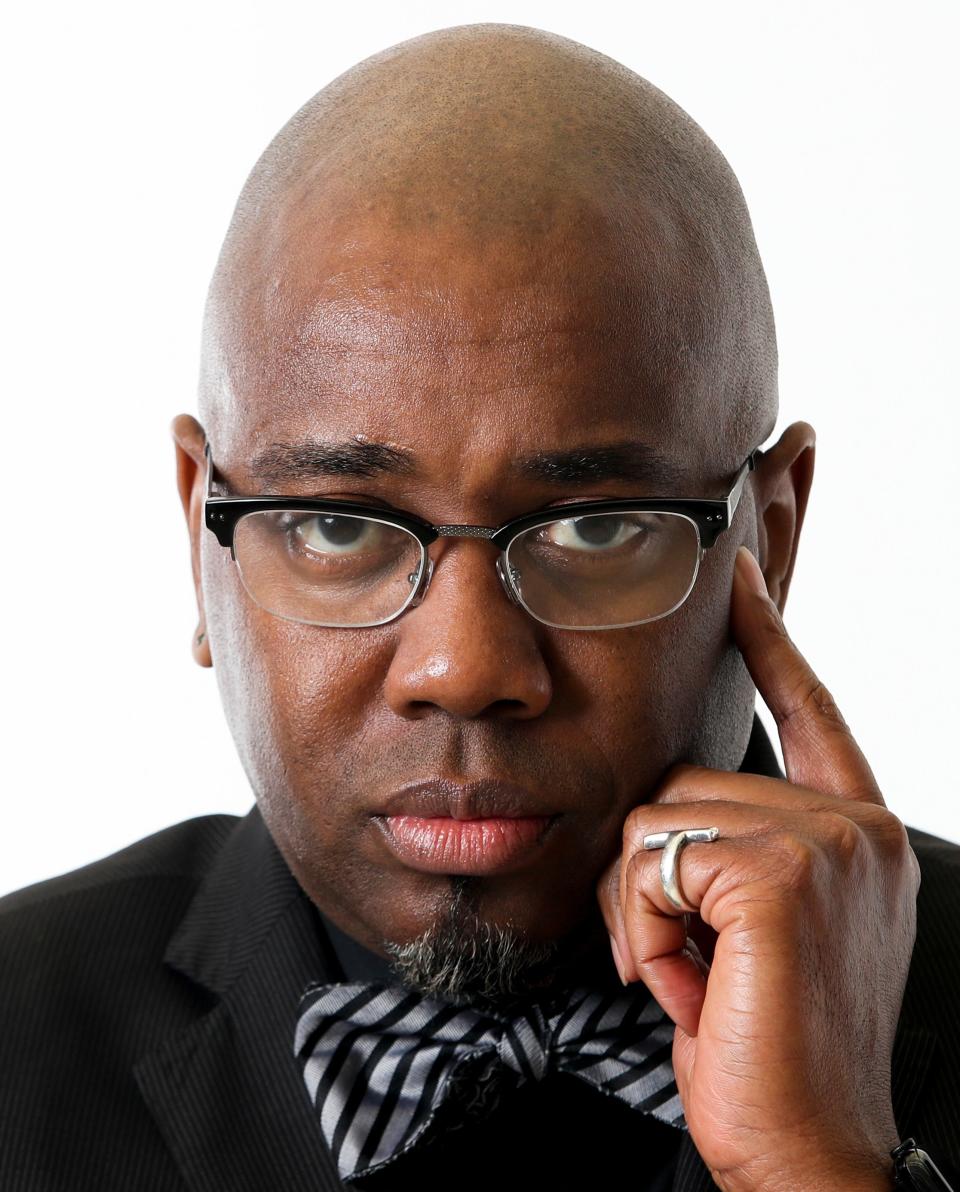Ricky Jones: Education is often an afterthought. How money impacts colleges beyond sports
Many observers lamented, “This is all about the money” when USC and UCLA bolted from the PAC-12 for the Big Ten a few weeks ago. Are people are just figuring that out? Of course it’s all about the money! Stop! It would be appropriate to rock the mighty Wu Tang Clan’s C.R.E.A.M. right now and let it roll while you read the remainder of this article. For those sad souls who are unfamiliar with that reference and Wu Tang, let me translate. C.R.E.A.M. means “cash rules everything around me.” Dollar, dollar bills, y’all!
Yes! Money doesn’t just rule the day for rappers, drug dealers, greedy Wall Street executives and shady politicians. It runs the show at many of today’s corporate American universities as well. After all, isn’t that the American way? Capital is king. Gotta make that dough!
Don’t misunderstand me. Yes, I’m a college professor who has worked at a sports factory university for years. But unlike many of my colleagues, I love sports . . . probably too much. That said, I’m not blind to the fact that we have serious problems in higher education and our approach to sports isn’t always healthy.
You may also likeWhat to know about the Jr. NBA Leagues, a youth basketball program coming to Louisville
There was a time I thought higher education was about just that – education at the highest level. Real-life disabused me of that notion. I remember sitting on a committee with a university president with whom I had a great relationship. We were struggling through a difficult issue and the financial bottom line kept coming up.
I grew frustrated and said, “My God. We keep coming back to the money. We’re talking like this is a corporation, not an educational institution.”
The president responded, “C’mon, Ricky. You’re too smart to keep thinking that way. It’s naïve. In many ways, this is a corporation. We have to live with that.” The years have proven that admonishment correct. I definitely needed to deal with the reality of higher education.
To be fair, all colleges and universities aren’t playing from the same sheet music. All aren’t sports-centric. All aren’t struggling financially. A few have enough money to make your head spin. For example, Malcolm Gladwell has argued no one should ever give another dime to Harvard University because Harvard doesn’t need it.
Consider this. The Tampa Bay Times editorial board recently reported that Harvard had a massive $53.2 billion endowment last school year. All historically Black colleges and universities combined (over 100 schools) have total endowments of a little less than $4 billion. That’s a staggering difference!
That gap isn’t relegated to race. The University of Louisville, where I work, has an endowment of almost $785 million. Harvard’s is a whopping 68 times greater. Harvard is the exception. Louisville is more the rule in American education.
Schools aren’t evil (at least not in this particular area, anyway), they’re just starved. Over the years, many states have devalued education and given less and less money to their public colleges and universities. This has caused schools to raise tuition at staggering rates, pricing themselves out of the market for many prospective students. The resulting student loan debt along with political attacks, ever-present American anti-intellectualism, and other factors have yielded a dangerously high percentage of citizens who don’t see college as “worth it.”
More:These 9 people will decide how and where Kentucky spends $240 million in opioid funds
The struggle to survive has led to any number of deleterious practices and twisted values in higher education. As a longtime department head, I’ve seen chairs meetings with administrators center less and less on producing better students and citizens through superior education. To the contrary, we now nauseatingly talk about money and myriad budget models to stretch dwindling resources.
New programs are approved only if they’re profitable. Full-time professors, some of the most intelligent and educated people in the country, are often paid embarrassingly low salaries. The compensation for our ever-expanding cadre of part-time faculty is downright criminal.
The sad reality is many schools have cut all they can over the years. There’s nothing left to cut but people and programs, which will harm the educational experience of students. In some cases, institutions will either merge or shut down. The future isn’t bright.
Like a troubling percentage of Americans, some schools now seem to care less about academics than athletics. It’s understandable because they see sports revenue as an important avenue to financial survival. That explains why athletic directors and coaches often make more money than college presidents. Stop and think about that for a moment.
So yes, the USC and UCLA jumps to the Big 10 were the latest major college sports moves that were all about the money. More will come. The clock is ticking on other schools that are scrambling to keep up. The three lesser leagues of the so-called Power Five (the ACC, PAC 12, and Big 12) are all scared now. They’re trying to avoid becoming dead conferences walking or individual schools left out in the cold. Smaller schools are trying to figure out ways to get a cut of the sports money, too. They all want more loot and will do whatever it takes to get it.
To be sure, education is often an afterthought in this game. But who gives a damn about that as long as people get paid and we’re entertained, right?
Wu Tang told you - C.R.E.A.M., baby!!! “Cash rules everything around me! Cream is the money! Dollar, dollar bills, y’all!” That song should be played before every big-time college football game moving forward.

Dr. Ricky L. Jones is professor and chair of the Pan-African Studies department at the University of Louisville. His column appears bi-weekly in the Courier-Journal. Visit him at rickyljones.com.
This article originally appeared on Louisville Courier Journal: Education is an afterthought. How money impacts colleges beyond sports

